Abarth 500 595 695 vs Mercedes EQV – Which car suits you better?
Both models have their strengths – but which one suits you more?
Compare performance, efficiency, price and space directly: Abarth 500 595 695 or Mercedes EQV?
Costs and Efficiency:
Price and efficiency are often the first things buyers look at. Here it becomes clear which model has the long-term edge – whether at the pump, the plug, or in purchase price.
Abarth 500 595 695 has a significantly advantage in terms of price – it starts at 32600 £, while the Mercedes EQV costs 50700 £. That’s a price difference of around 18185 £.
In terms of energy consumption, the advantage goes to the Abarth 500 595 695: with 17.10 kWh per 100 km, it’s significantly more efficient than the Mercedes EQV with 27.10 kWh. That’s a difference of about 10 kWh.
As for range, the Mercedes EQV performs noticeable better – achieving up to 364 km, about 99 km more than the Abarth 500 595 695.
Engine and Performance:
Power, torque and acceleration are the classic benchmarks for car enthusiasts – and here, some clear differences start to show.
When it comes to engine power, the Mercedes EQV has a clearly perceptible edge – offering 204 HP compared to 155 HP. That’s roughly 49 HP more horsepower.
In acceleration from 0 to 100 km/h, the Abarth 500 595 695 is significantly quicker – completing the sprint in 7 s, while the Mercedes EQV takes 10.30 s. That’s about 3.30 s faster.
In terms of top speed, the Abarth 500 595 695 performs hardly perceptible better – reaching 155 km/h, while the Mercedes EQV tops out at 140 km/h. The difference is around 15 km/h.
There’s also a difference in torque: Mercedes EQV pulls clearly perceptible stronger with 365 Nm compared to 235 Nm. That’s about 130 Nm difference.
Space and Everyday Use:
Beyond pure performance, interior space and usability matter most in daily life. This is where you see which car is more practical and versatile.
Seats: Mercedes EQV offers evident more seating capacity – 6 vs 4.
In curb weight, Abarth 500 595 695 is decisively lighter – 1410 kg compared to 2666 kg. The difference is around 1256 kg.
In terms of boot space, the Mercedes EQV offers decisively more room – 1410 L compared to 185 L. That’s a difference of about 1225 L.
In maximum load capacity, the Mercedes EQV performs significantly better – up to 5010 L, which is about 4460 L more than the Abarth 500 595 695.
When it comes to payload, Mercedes EQV significantly takes the win – 834 kg compared to 385 kg. That’s a difference of about 449 kg.
Who wins the race?
The Mercedes EQV proves to be outperforms in nearly all aspects and therefore becomes our DriveDuel Champion!
Mercedes EQV is the better all-rounder in this comparison.
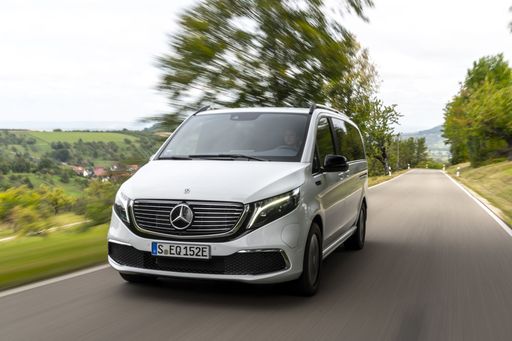 @ Mercedes-Benz Group Media
@ Mercedes-Benz Group Media
Mercedes EQV
Abarth 500 595 695
The Abarth 500, particularly in its 595 and 695 renditions, captures the spirit of Italian motoring with its compact yet aggressive design. Known for its lively performance and distinctive styling, this little powerhouse is a joy to drive, offering an engaging experience that appeals to enthusiasts. With its rich motorsport heritage, the Abarth 500 embodies the essence of fun and excitement on both the streets and the race track.
details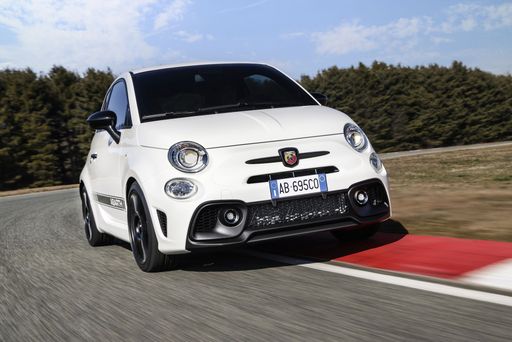 @ Abarth / Stellantis Media
@ Abarth / Stellantis Media
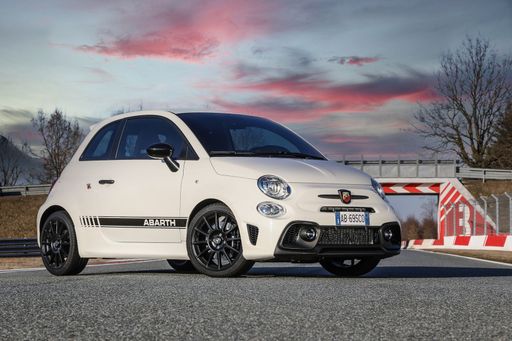 @ Abarth / Stellantis Media
@ Abarth / Stellantis Media
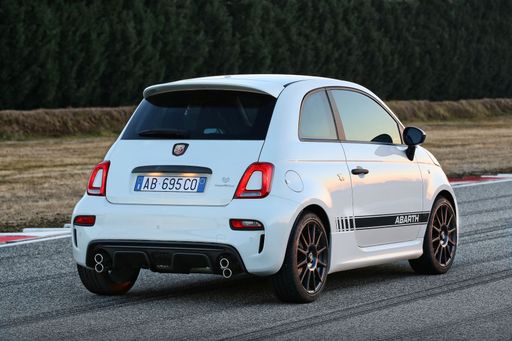 @ Abarth / Stellantis Media
@ Abarth / Stellantis Media
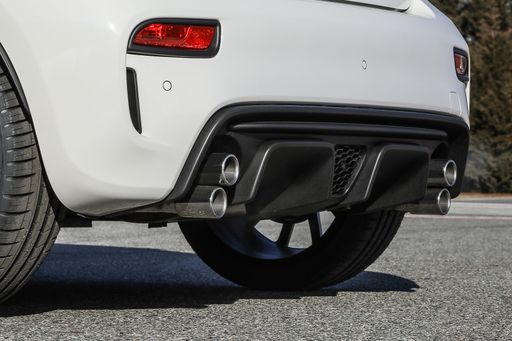 @ Abarth / Stellantis Media
@ Abarth / Stellantis Media
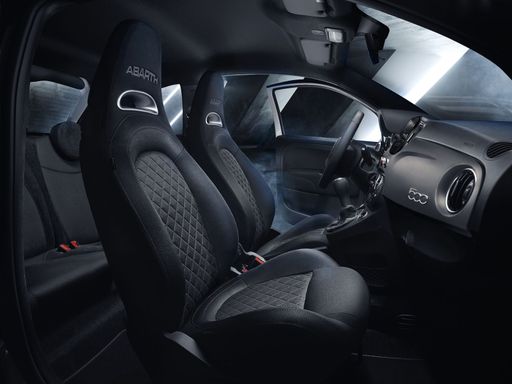 @ Abarth / Stellantis Media
@ Abarth / Stellantis Media
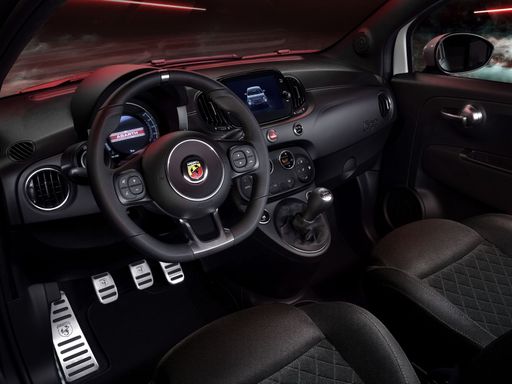 @ Abarth / Stellantis Media
@ Abarth / Stellantis Media
Mercedes EQV
The Mercedes-Benz EQV stands out as a versatile electric vehicle combining luxury with practicality, making it an ideal choice for environmentally conscious families. With its spacious interior and sleek design, it offers a premium driving experience that aligns with the brand's reputation for quality and innovation. As a sustainable option in the realm of people carriers, it exhibits the perfect balance between cutting-edge technology and everyday usability.
details @ Mercedes-Benz Group Media
@ Mercedes-Benz Group Media
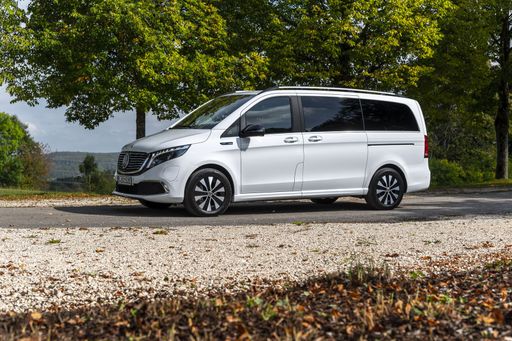 @ Mercedes-Benz Group Media
@ Mercedes-Benz Group Media
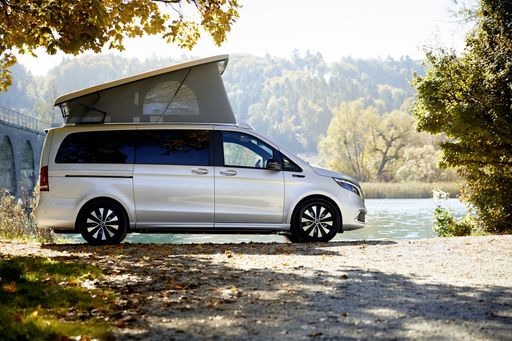 @ Mercedes-Benz Group Media
@ Mercedes-Benz Group Media
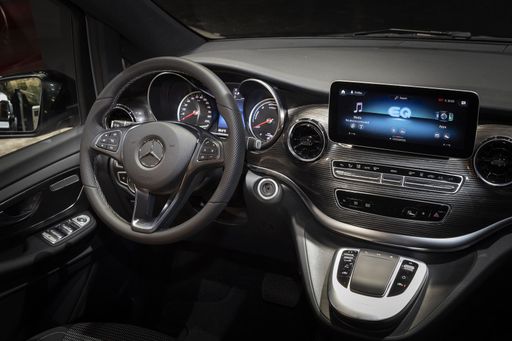 @ Mercedes-Benz Group Media
@ Mercedes-Benz Group Media
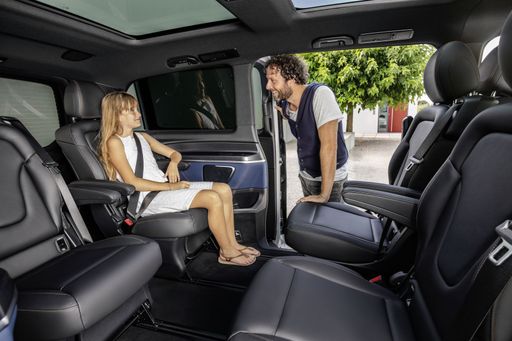 @ Mercedes-Benz Group Media
@ Mercedes-Benz Group Media
 @ Abarth / Stellantis Media
@ Abarth / Stellantis Media
|
 @ Mercedes-Benz Group Media
@ Mercedes-Benz Group Media
|
|
|
|
Costs and Consumption |
|
|---|---|
|
Price
32600 - 39400 £
|
Price
50700 - 54400 £
|
|
Consumption L/100km
-
|
Consumption L/100km
-
|
|
Consumption kWh/100km
17.1 - 18.8 kWh
|
Consumption kWh/100km
27.1 - 27.5 kWh
|
|
Electric Range
242 - 265 km
|
Electric Range
244 - 364 km
|
|
Battery Capacity
37.80 kWh
|
Battery Capacity
60 - 90 kWh
|
|
co2
0 g/km
|
co2
0 g/km
|
|
Fuel tank capacity
-
|
Fuel tank capacity
-
|
Dimensions and Body |
|
|---|---|
|
Body Type
Hatchback
|
Body Type
Bus
|
|
Seats
4
|
Seats
6
|
|
Doors
3
|
Doors
5
|
|
Curb weight
1410 - 1435 kg
|
Curb weight
2666 - 2863 kg
|
|
Trunk capacity
185 L
|
Trunk capacity
1030 - 1410 L
|
|
Length
3673 mm
|
Length
5140 - 5370 mm
|
|
Width
1682 mm
|
Width
1928 mm
|
|
Height
1518 mm
|
Height
1920 - 1923 mm
|
|
Max trunk capacity
550 L
|
Max trunk capacity
4630 - 5010 L
|
|
Payload
370 - 385 kg
|
Payload
637 - 834 kg
|
Engine and Performance |
|
|---|---|
|
Engine Type
Electric
|
Engine Type
Electric
|
|
Transmission
Automatic
|
Transmission
Automatic
|
|
Transmission Detail
-
|
Transmission Detail
Reduction Gearbox
|
|
Drive Type
Front-Wheel Drive
|
Drive Type
Front-Wheel Drive
|
|
Power HP
155 HP
|
Power HP
204 HP
|
|
Acceleration 0-100km/h
7 s
|
Acceleration 0-100km/h
10.3 - 12.1 s
|
|
Max Speed
155 km/h
|
Max Speed
140 km/h
|
|
Torque
235 Nm
|
Torque
365 Nm
|
|
Number of Cylinders
-
|
Number of Cylinders
-
|
|
Power kW
114 kW
|
Power kW
150 kW
|
|
Engine capacity
-
|
Engine capacity
-
|
General |
|
|---|---|
|
Model Year
2023
|
Model Year
2024
|
|
CO2 Efficiency Class
A
|
CO2 Efficiency Class
A
|
|
Brand
Abarth
|
Brand
Mercedes-Benz
|
Is the Abarth 500 595 695 offered with different drivetrains?
The Abarth 500 595 695 is offered with Front-Wheel Drive.
The prices and data displayed are estimates based on German list prices and may vary by country. This information is not legally binding.
